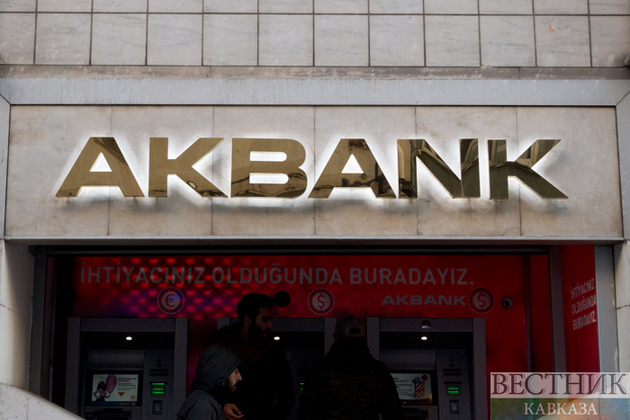Turkey’s annual inflation rose more than expected to 54.44% in February, official data showed on Thursday, with Russia's operation in Ukraine raising concerns of further price pressure.
The reading that marked a two-decade high was fueled by a slide in the Turkish lira late last year and higher commodity prices. Month-over-month, the consumer prices index (CPI) surged 4.81%, the Turkish Statistical Institute (TurkStat) said, Daily Sabah reports. Surveys had forecast the annual inflation could reach 53%, while the estimate for the monthly CPI was 3.8%.
Elsewhere, annual inflation increased by a record 5.8% in the eurozone in February and by 7.5% in the United States in January – the fastest pace in 40 years. The producer price index in Turkey soared 7.22% month-over-month in February for an annual rise of 105%, the data showed, reflecting the rise in commodity prices amid Russia-Ukraine tensions.
Inflation has surged since last fall amid soaring global commodity and energy prices and as the lira weakened after the central bank in September embarked on an easing cycle, which saw its policy rate being slashed by 500 basis points to 14%.
The policy easing came as the government endorses a new economic program that prioritizes growth, investment and exports while keeping rates low. Last month's inflation was driven by food and nonalcoholic drink prices, which soared 8.41% month-over-month, while furniture prices rose 7%. Annually, transportation prices surged 75.75%, while furniture prices rose 64.83%, data showed.
Turkey's energy bill surged last year as global prices and demand rose, leading Ankara to hike energy prices at the start of the year, including a 50% hike to electricity prices for lower-demand households.
In an effort to soften the impact on households, the government last month cut tax on basic goods to 1% from 8% and subsidized a significant amount of electricity bills.
On Monday, it announced a value-added tax (VAT) cut on electricity used for residential and agricultural irrigation purposes to 8% from 18%. It also introduced a set of measures to reduce surging power bills, including readjusting the level under which higher electricity tariffs for households and some businesses using more energy kick in.
The central bank said in a report in January that it expects inflation to peak around May when it is seen rising to around 55%. But Russia's operation in Ukraine has raised the prospect of even higher inflation in Turkey, an importer of oil, natural gas and grains, the prices of which have surged due to the tensions.
A Turkish official said upward risks on inflation were growing and energy prices would continue to put pressure on prices. "There is a picture before us that is straining the balance of the economy. Adding in the Fed's (Federal Reserve) future decision, it is clear that it will be a difficult period," the official told Reuters.
"The spillover effects from the Russia-Ukraine crisis, including higher global commodity prices and potentially fresh supply chain disruptions, mean that the risks are skewed to the upside," Jason Tuvey, senior EM economist at Capital Economics, said in a note.
The lira has been broadly stable since the start of the year following a 44% decline in 2021 and was hovering just below 14 against the U.S. dollar. But it topped the level last week as volatility returned over rising tensions between Moscow and Kyiv. The currency was little changed after inflation data on Thursday, standing at 14.13 against the dollar at 7:36 a.m. GMT.






